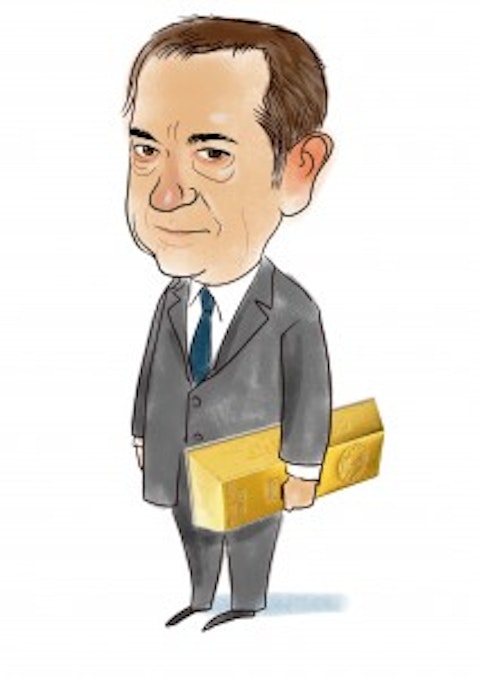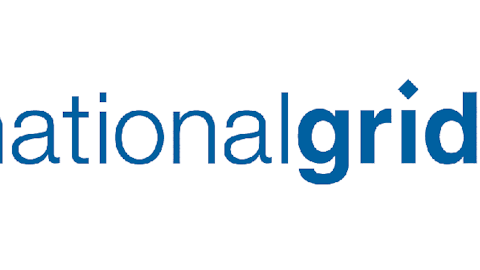Editor’s Note: Related tickers: Berkshire Hathaway Inc. (NYSE:BRK.A)

Billionaire hedge fund manager John Paulson lost over $300 million of his personal wealth and his investors lost $62 million on Friday as gold tumbled to nearly 2-year lows, reports Katherine Burton for Bloomberg. Eighty-five percent of Paulson & Co.’s $9.5 billion is invested in gold share classes with the biggest stake held in AngloGold Ashanti. AngloGold’s share price fell 5.6% in the midst of Friday’s sell-off. The past couple of years have been tough ones for Paulson, who told investors that gold would remain an attractive safe haven and hedge against inflation. His gold fund was down some 28% by the end of March this year.
David Rothberg: Investors cannot quite dispel a feeling that something just ain’t right (Opalesque)
The Friedberg Global Macro hedge fund is now closed to new investors, reports David Rothberg, a Canadian fund and risk manager, but the Niagara Discovery fund, a multi-strategy fund, remains open. Rothberg also comments on the weird current equity trend, the weak recovery and the potential bubbles in sight. Friedberg Global-Macro Hedge Fund is closed to new investors The Friedberg Global-Macro Hedge Fund Ltd., which now has US$935.7m in AuM, was up 3.04% in March and up 6.77% YTD, annualising 16.7% since its December 2001 inception. The Cayman domiciled fund is a multi-strategy global macro fund managed by Albert Friedberg, co-founder of Toronto, Canada-based Friedberg Mercantile Group, and a practitioner of global macro investing since 1971. The Friedberg family is the Fund’s lead investor, and Niagara Capital – also based in Toronto – is the international sales agent for the fund.
SAC Capital Loses Hong Kong Staff At A Critical Time (IVCPost)
SAC Capital Advisors has lost seven Hong Kong staff and relocated five others, but the hedge fund had declined to explain the departures. Sources said that the departures were ill-timed, coming at a time when investors have submitted redemption notices for $1.7 billion of the $15 billion fund following an investigation on insider trading in the U.S. that led to the arrest of Michael Steinberg, a veteran portfolio manager. Analysts are also looking at a broader picture in the Asian hedge fund industry where the investment returns have not met expectations.
Pay Stretching to 10 Figures (NYTimes)
In recent years, the criticism about giant Wall Street hedge funds — those that command billions of investor dollars from pension funds, endowments and the wealthy — is that they’re simply too big to beat the market. But a number of the hedge fund leaders who had giant paydays last year bucked the trend. They earned their riches the old-fashioned way: by posting big returns on their investments.
Jitters fail to spook solid first quarter (eFinancialNews)
Most of the 18 strategy and five regional indices published by data provider Hedge Fund Research posted positive gains for the quarter, with the exception of short-biased funds, indices focused on energy strategies and those investing in Russia/eastern Europe. The average hedge fund gained 3.9% in the quarter, with equity strategies leading the way. Against a more robust economic backdrop, macro volatility dropped and the level of correlation between assets and regions decreased, with developed markets outperforming emerging markets. Tony Gannon, chief executive at Abbey Capital, a managed futures-focused fund of funds, said: “It was quite an important quarter because we saw a dissipation of the ‘risk-on/risk-off’ environment that had characterised the previous two years.
Asset managers criticize proposed bonus cap on UCITS managers… uptick seen in UCITS fund launches in response to impending AIFM Directive… (HedgeWeek)
There’s been an uptick in the number of alternative fund managers launching UCITS-compliant funds in recent months in response to growing uncertainty around the Alternative Investment Fund Managers’ Directive (AIFMD) reported CooConnect.com, citing comments made by panellists at an ALFI conference in London. Serge Weyland, head of regional coverage for North America and UK at CACEIS Bank said that managers running SIFs and hedge funds launching UCITS funds to avoid running AIFMD-compliant was “a noticeable trend”. He caveated the point by saying that it was only those managers running strategies such as CTAs or emerging markets-focused products “which can easily be replicated in UCITS that are doing this”. One anonymous attendee, however, said that he hadn’t seen a surge in hedge fund managers entering the UCITS space but rather it appeared to be a “minority”, noting that the costs and the number of strategies which hedge funds can realistically put into a UCITS “do not make it an attractive proposition for the majority”.
Barington Urges Focus for Jones Group (IVCPost)
Barington Capital Group, the activist hedge fund, is advising fashion company, Jones Group, to sell off part of its asset portfolio. The incident was reported by the Wall Street Journal citing an anonymous source with knowledge on the matter. The hedge fund owns about 2% of the company’s shareholdings and aside from the divestment, other options include cutting costs and expanding the number of directors on the board. The newspaper reported that Jones Group CEO Wesley Card had met with Barington representatives upon the latter’s request earlier in the month.
Ex-Soros Adviser Says BOJ’s Massive Easing to Backfire (GNom)
The Bank of Japan (8301)’s “huge bet” by boosting quantitative easing won’t turn the economy around and is instead sending the nation toward default, said Takeshi Fujimaki, former adviser to billionaire investor George Soros. The BOJ said April 4 it will double monthly debt purchases to 7.5 trillion yen ($76 billion). That’s about 70 percent of planned bond issuance from the world’s most heavily indebted government. Governor Haruhiko Kuroda set a two-year horizon for achieving the 2 percent annual inflation target adopted in January at Prime Minister Shinzo Abe’s urging and said the monetary base will grow to 270 trillion yen by the end of 2014.




